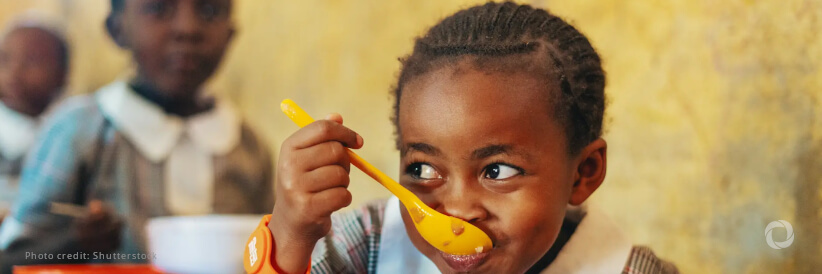An additional one million children in Nigeria will be suffering from acute malnutrition by April next year without urgent action as extreme flooding, escalating violence, and rampant food shortages fuel a deepening hunger crisis, Save the Children said.
Analysis of new hunger data from Cadre Harmonisé—the leading regional authority on the severity of hunger crises in the Sahel and West Africa—showed that 5.4 million children are at risk of facing acute malnutrition by next April, a 25% increase compared to the 4.4 this past April.
Among them, about 1.8 million could be experiencing Severe Acute Malnutrition (SAM) – the deadliest form of malnutrition that compromises children’s immune systems and turns otherwise treatable illnesses, such as diarrhea, potentially lethal. This represents an alarming 80% increase in SAM cases.
Aisha, 27, mother of 6, speaking at the Save the Children’s clinic in Damaturu, said: “Hunger has entered my daughter’s body and she has emaciated terribly because I am unable to breastfeed her, I don’t produce breast milk. It has affected her growth compared to other children; she was stooling profusely” “we are grateful to Save the Children for the support at the center.”
During this year’s lean season – the season between harvests – about 31.8 million people were estimated to be facing crisis or worse acute food insecurity. Next year it’s predicted that 33 million people in Nigeria will not know where their next meal will come from, including over 16 million children.
Hunger has risen sharply in Nigeria in recent years, up from about 7% of the population analyzed by the UN in 2020 to 15% currently.
The situation is particularly dire in the northwest and northeast of the country, where ongoing conflict and insecurity are driving displacement and disrupting livelihoods.
With a population of about 230 million, Nigeria is highly vulnerable to the impacts of the climate crisis. Expanding desertification is consuming farmland and limiting communities’ ability to grow food. This year the country has faced its worst floods in 30 years, killing over 300 people and forcing 1.2 million people from their homes.
Hajara 15, a child campaigner from Katsina, said: “I am so worried about how food insecurity is hitting children in our community. With banditry everywhere, farmers cannot go to farms so food is getting harder to find. Lots of children go to bed hungry, and malnutrition is going up, leaving us tired and unable to concentrate in school. We need our leaders to step up, bring security back, and help us get the support we need so every child here can grow up safe, well-fed, and healthy.”
Duncan Harvey, Save the Children’s Country Director for Nigeria, said: “In Nigeria, the crisis is reaching unprecedented levels as catastrophic climate disasters, escalating insecurity, and soaring prices threaten to leave over 16 million children hungry. Urgent action is essential to combat this devastating and unacceptable trend of child hunger and malnutrition and ensure a brighter future for Nigeria’s children.”
Save the Children is calling on governments to address food insecurity by tackling food shortages, stabilizing rising prices, and increasing protection for farmers facing violence from armed groups. Governments also need to address the climate crisis by building communities’ resilience, as well as more awareness and early warning for people to prepare for climate-induced disasters.
Save the Children has been working in Nigeria since 2001 and has been responding to the humanitarian crisis in the northeast since 2014. Save the Children is providing food, clean water, nutrition and protection services, sexual and reproductive health care, and education to families across Nigeria. Save the Children also provides technical support to the government on policy changes and reforms, especially in critical sectors such as health, education, and social protection.

